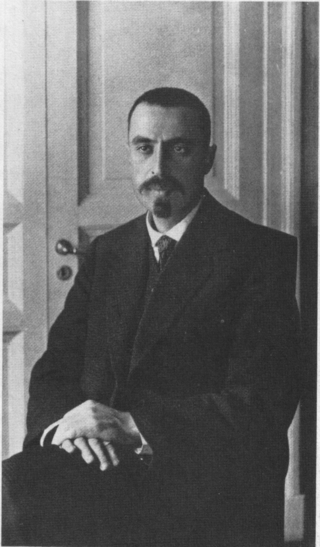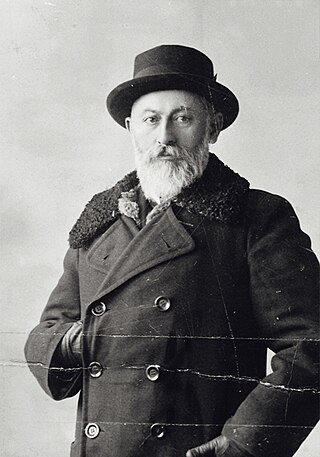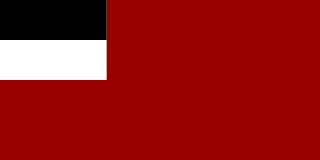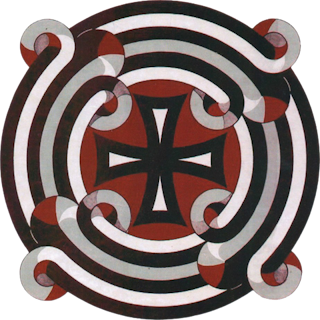Related Research Articles
Politics in Georgia involve a parliamentary representative democratic republic with a multi-party system. The President of Georgia is the ceremonial head of state and the Prime Minister of Georgia is the head of government. The Prime Minister and the Government wield executive power. Legislative power is vested in both the Government and the unicameral Parliament of Georgia.

Irakli Tsereteli was a Georgian politician and a leading spokesman of the Social Democratic Party of Georgia and later Russian Social Democratic Labour Party (RSDLP) during the era of the Russian Revolutions.

Zviad Konstantines dze Gamsakhurdia was a Georgian politician, human rights activist, dissident, professor of English language studies and American literature at Tbilisi State University, and writer who became the first democratically-elected President of Georgia in May 1991.

Prince Ilia Chavchavadze was a Georgian public figure, journalist, publisher, writer and poet who spearheaded the revival of Georgian nationalism during the second half of the 19th century and ensured the survival of the Georgian language, literature, and culture during the last decades of Tsarist rule. He is Georgia's "most universally revered hero" and is regarded as the "Father of the Nation."

Noe Zhordania was a Georgian journalist and Menshevik politician. He played an eminent role in the socialist revolutionary movement in the Russian Empire, and later chaired the government of the Democratic Republic of Georgia from July 24, 1918, until March 18, 1921, when the Bolshevik Russian Red Army invasion of Georgia forced him into exile to France. There Zhordania led the government-in-exile until his death in 1953.

April 9 Tragedy refers to the events in Tbilisi, Georgian Soviet Socialist Republic, on April 9, 1989, when an anti-Soviet, pro-independence demonstration was crushed by the Soviet Army, resulting in 21 deaths and hundreds of injuries. April 9 is now remembered as the Independence Restoration Day, an annual public holiday.

The National Democratic Party is a political party in Georgia. It was established in 1988 by Giorgi Chanturia as a radical splinter group of the Ilia Chavchavadze Society. Although another party with the same name also existed earlier among the Georgian intelligentsia and in the Democratic Republic of Georgia from 1917 to 1924, this group was independent of that.
For articles related to Georgia, see Category:Georgia (country)

The Parliament of Georgia is the supreme national legislature of Georgia. It is a unicameral parliament, currently consisting of 150 members elected through fully proportional election.

The Social Democratic Party of Georgia, also known as the Georgian Menshevik Party, was a Georgian Marxist and social democratic political party. It was founded in the 1890s by Nikolay Chkheidze, Silibistro Jibladze, Egnate Ninoshvili, Noe Zhordania and others. It became the Georgian branch of the Russian Social Democratic Labour Party. After 1905, Georgian social democrats joined the Menshevik faction, except for some such as Joseph Stalin, Grigol Ordzhonikidze and Makharadze. Several leaders were elected to the Russian Duma from Kutais or Tifli: Nikolay Chkheidze, Akaki Chkhenkeli, Evgeni Gegechkori, Isidore Ramishvili, Irakly Tsereteli, and Noe Zhordania.

Georgia has a monarchic tradition that traces its origins to the Hellenistic period. The medieval Kingdom of Georgia ruled by the Bagrationi dynasty has left behind a legacy that lasts in Georgia even in modern times. The qualities and symbols associated with the Bagrationi monarchy have been crucial in the making of the Georgian nation and the subsequent construction of national history. Their rule ended with the annexation of Georgian lands by the Russian Empire early in the 19th century, although several branches of the dynasty survive to this day. The monarchic restoration was considered by various royalist groups throughout the 20th century. Although Georgia's politics has been taking place in the framework of a semi-presidential republic since the nation regained its independence from the Soviet Union in 1991, the debate on monarchy, particularly its constitutional form, has never actually ceased. The issue came up most recently amid a political crisis in late 2007.

Akaki "Ako" Minashvili is a Georgian politician, a member of Parliament in 2008-2016 and since 2020, and a former Chairman of its Foreign Relations Committee.

Parliamentary elections were held in the Georgian SSR on 28 October 1990, with a second round on 11 November. They were the first free parliamentary elections in Georgia since 1919 and saw Round Table-Free Georgia emerge as the largest party in Parliament with 155 of the 250 seats. Voter turnout was 70%.
Ilia Chavchavadze Society is a political organisation from Georgia. The group dates back to the days of the Soviet Union, where it was an important factor in the growth of Georgian nationalism.
Meore Dasi was the name for a group of Georgian liberal intelligentsia that existed in the latter part of the 19th century, when Georgia was part of the Russian Empire. Founded in 1869 by Giorgi Tsereteli and Petre Umikashvili, it was a contrast to the Pirveli dasi that was based around Ilia Chavchavadze and was one of the first Georgian nationalist groups to exist.

Round Table—Free Georgia was an alliance of Georgian political parties led by Zviad Gamsakhurdia. It played a decisive role in the restoration of independence of Georgia and was a governing coalition in 1990 until 1992.

Anarchism in Georgia began to emerge during the late 19th century out of the Georgian national liberation movement and the Russian nihilist movement. It reached its apex during the 1905 Russian Revolution, after a number of anarchists returned from exile to participate in revolutionary activities, such as in the newly-established Gurian Republic.

Droa! is a liberal political party in Georgia founded by Elene Khoshtaria in 2021, after her split from the European Georgia party. It is currently a part of the Coalition for Change alliance taking part in the 2024 parliamentary election.
Nato Chkheidze is a Georgian businesswoman and politician, co-founder of the Omega Group with her husband Zaza Okuashvili, and a member of Parliament in 1999-2004 and since 2020.
Bachuki Kardava is a Georgian politician, chairman of the National Democratic Party and a member of Parliament since 2020. One of Georgia's longest-standing opposition leaders, he has been at times opposed to both the presidency of Mikheil Saakashvili and the government of Georgian Dream.
References
- 1 2 Stephen Jones, Georgia: A Political History Since Independence, I.B. Tauris, 2015, pp. 38-39
- 1 2 3 4 Jonathan Wheatley, Georgia from National Awakening to Rose Revolution: Delayed Transition in the Former Soviet Union, Routledge, 2017 link
- ↑ Nohlen, D, Grotz, F & Hartmann, C (2001) Elections in Asia: A data handbook, Volume I, p382 ISBN 0-19-924958-X
- ↑ Jones, Georgia, p. 89
- ↑ Jones, Georgia, pp. 235-236
- ↑ "GEORGIA: VETERAN GEORGIAN OPPOSITION FIGURE ASSAULTED.(National Independence Party of Georgia Chairman Irakli Tsereteli)". Info-Prod Research. 5 April 2000. Archived from the original on 23 June 2018. Retrieved 31 May 2017.
- ↑ "GEORGIA: TWELVE CANDIDATES QUALIFY FOR GEORGIAN PRESIDENTIAL POLL AS GEORGIAN OPPOSITION ALLIANCE ANNOUNCES BOYCOTT". Info-Prod Research. 2 March 2000. Archived from the original on 23 June 2018. Retrieved 31 May 2017.
- ↑ Imogen Bell (ed.), Eastern Europe, Russia and Central Asia 2003, Taylor & Francis, 2002, 3rd Edition, p. 192
- ↑ Liz Fuller, Georgia: Former Minister's Allies Accused Of Plotting Coup